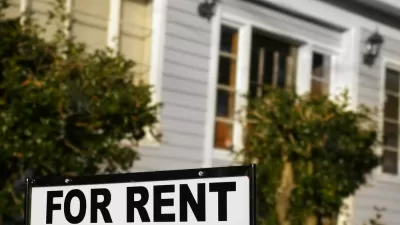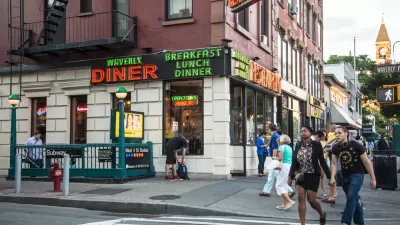Even amid a stalled economy, new data from the FBI reports that big cities, those with a population of at least one million, are seeing huge declines in crime.
According to an annual crime report released by the FBI, there has been a substantial decline in both property and violent crimes across the nation. Most noteworthy is data revealing that America's biggest cities are seeing greater declines in burglaries, car thefts, murder, robbery, and assault. Big cities, stereotypically perceived as crime-ridden and violent are safer then ever before. The FBI's findings are surprising criminologists because they contradict the notion that crime rises with unemployment. A population shift back to the city has helped to change the urban crime landscape,
"one factor frequently cited by criminologists is demographics. Crimes are more likely to be committed by young people, so the crime rate drops when the cohort of young people shrinks, as it has in the past few years. Better policing surely helps too, as has urban revitalization, which is bringing relatively prosperous singles, couples, families, and empty nesters into neighborhoods that had been in decline in years past, improving neighborhood quality and safety."
FULL STORY: Don't Fear the City: Urban America's Crime Drops to Lowest in 40 Years

Planetizen Federal Action Tracker
A weekly monitor of how Trump’s orders and actions are impacting planners and planning in America.

Maui's Vacation Rental Debate Turns Ugly
Verbal attacks, misinformation campaigns and fistfights plague a high-stakes debate to convert thousands of vacation rentals into long-term housing.

Restaurant Patios Were a Pandemic Win — Why Were They so Hard to Keep?
Social distancing requirements and changes in travel patterns prompted cities to pilot new uses for street and sidewalk space. Then it got complicated.

In California Battle of Housing vs. Environment, Housing Just Won
A new state law significantly limits the power of CEQA, an environmental review law that served as a powerful tool for blocking new development.

Boulder Eliminates Parking Minimums Citywide
Officials estimate the cost of building a single underground parking space at up to $100,000.

Orange County, Florida Adopts Largest US “Sprawl Repair” Code
The ‘Orange Code’ seeks to rectify decades of sprawl-inducing, car-oriented development.
Urban Design for Planners 1: Software Tools
This six-course series explores essential urban design concepts using open source software and equips planners with the tools they need to participate fully in the urban design process.
Planning for Universal Design
Learn the tools for implementing Universal Design in planning regulations.
Heyer Gruel & Associates PA
JM Goldson LLC
Custer County Colorado
City of Camden Redevelopment Agency
City of Astoria
Transportation Research & Education Center (TREC) at Portland State University
Jefferson Parish Government
Camden Redevelopment Agency
City of Claremont





























